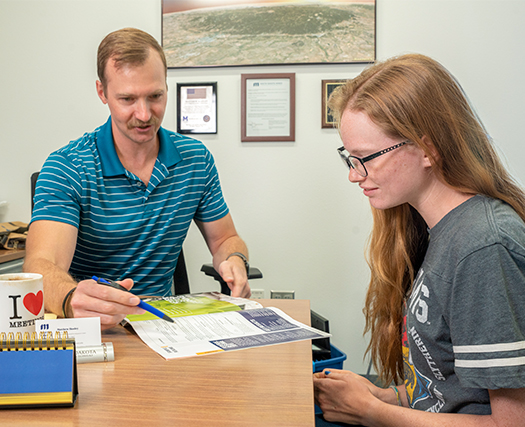Why College Matters
A higher education credential changes outcomes not just for individuals but also for their families and the entire South Dakota economy. College degrees lead to opportunities for a lifelong career, financial stability and better overall health and well-being. In today’s world, educational attainment plays an even more significant role in many aspects of people’s lives — and higher education opportunities in South Dakota include both two-year and four-year colleges.







